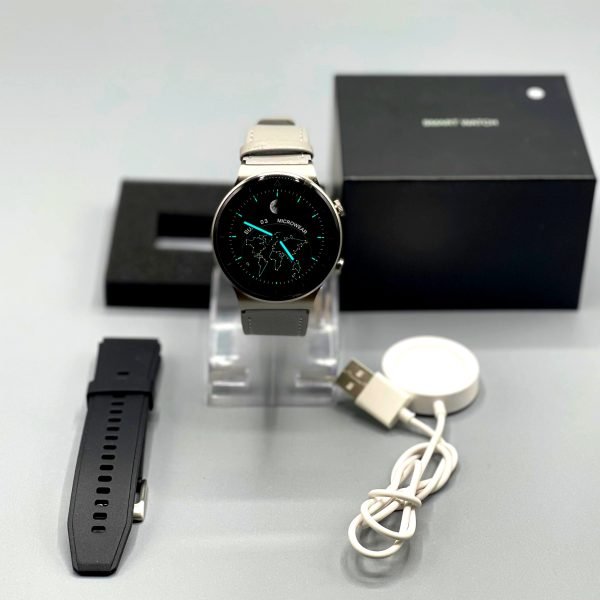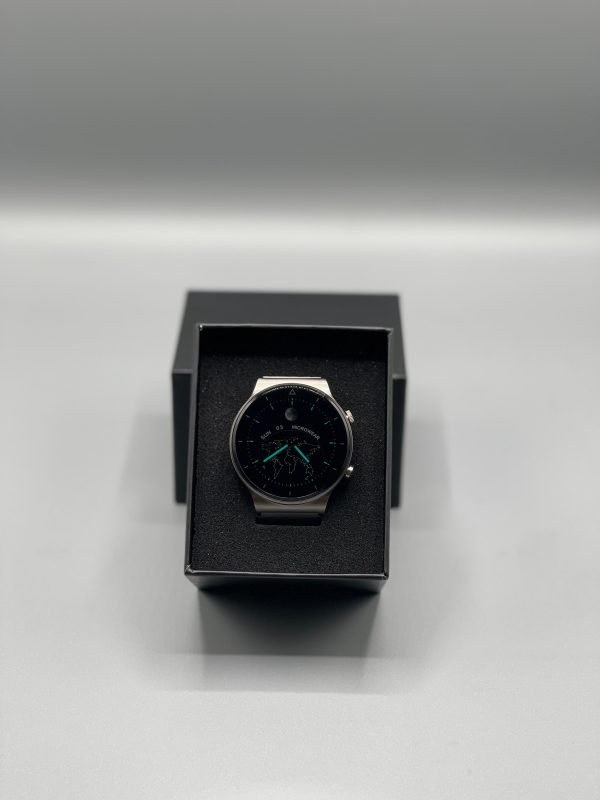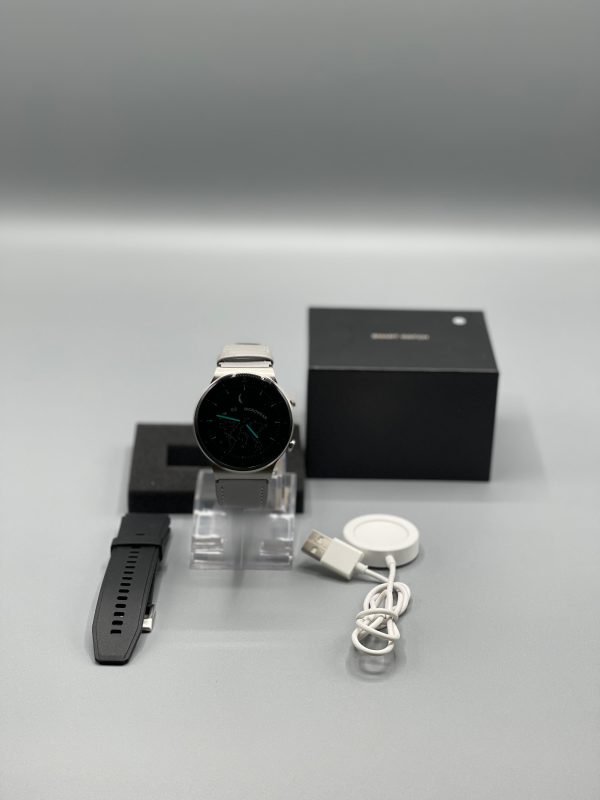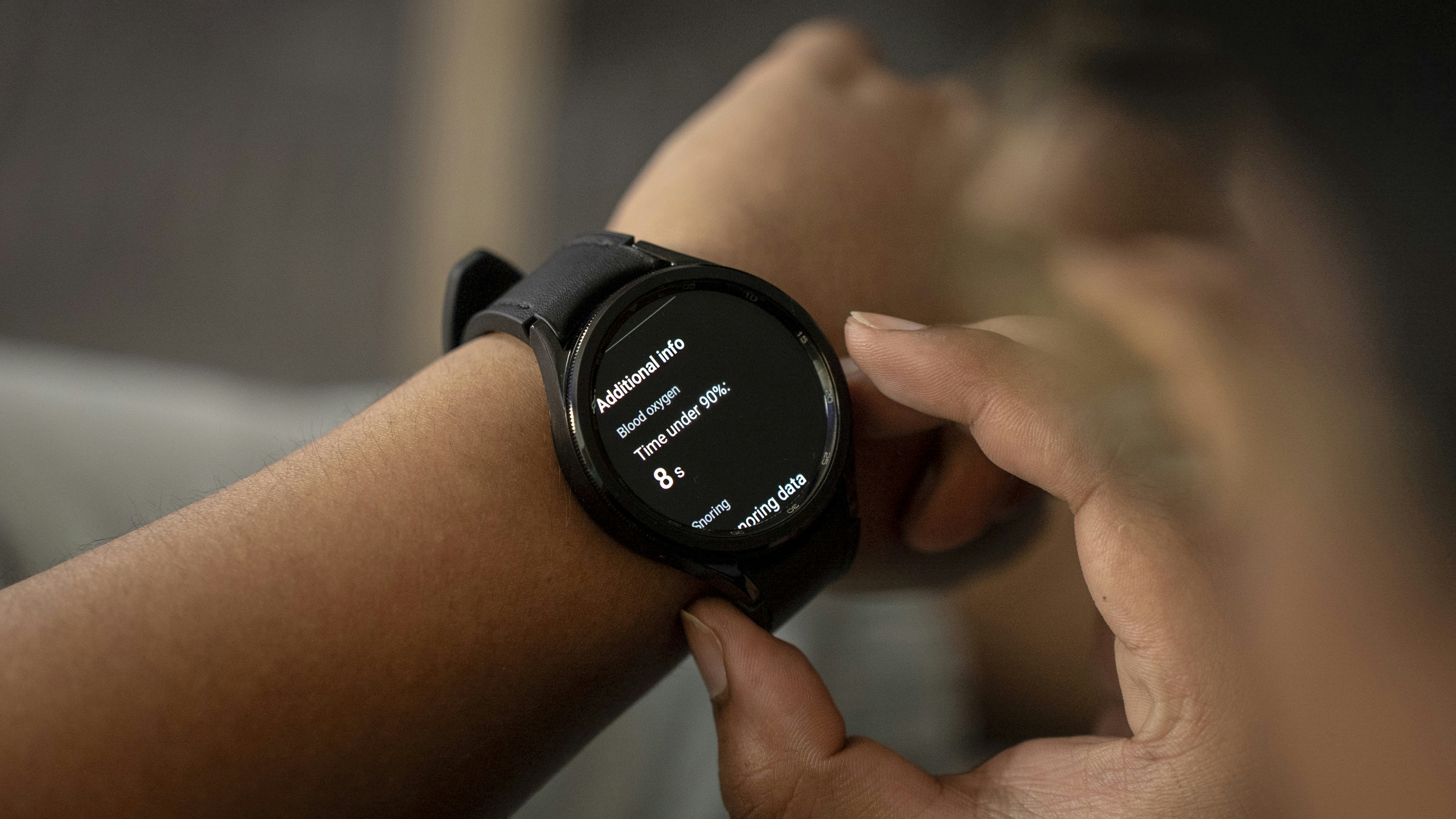The advent of technology has led to the evolution of traditional wristwatches into sophisticated smartwatches, particularly appealing to sports enthusiasts.
With the integration of advanced functions such as fitness tracking, heart rate monitoring, and Bluetooth capabilities, these devices have become indispensable tools for athletes and fitness junkies alike.
The rise in popularity of smart watches in the realm of sports can be attributed to their versatility and the way they seamlessly blend style with functionality.
As a result of continuous innovation, modern smart watches are equipped with features that facilitate effective monitoring of physical activities. Fitness trackers, once standalone devices, now find their functionalities embedded in smartwatches.
This development empowers users to track their workouts, set fitness goals, and even receive real-time feedback on their performance. The ability of a Bluetooth wrist watch to sync with smartphones further enhances the overall experience, allowing easy access to notifications and control over music playlists while on the move.
In addition to fitness tracking, smart watches for sports also come with GPS capabilities, which accurately map out routes and distances traveled during outdoor activities such as running or cycling.
The significance of such features cannot be overstated as they provide users with insights necessary to optimize their training regimens. From counting steps to tracking heart rate zones, the data gathered can guide athletes in refining their performance and achieving their fitness goals.
Moreover, these smart devices offer a unique advantage of motivation through their multifunctional interfaces, often integrating social features that allow users to share achievements with a community of like-minded individuals.
This aspect not only fosters a sense of belonging but also encourages consistency in pursuing fitness objectives. With an array of options available, smart watches have undoubtedly become essential companions for those committed to a healthy and active lifestyle.

Key Features of Touchscreen Bluetooth Smart Watches
Touchscreen Bluetooth smart watches have gained significant popularity among sports enthusiasts due to their array of advanced features tailored for fitness and outdoor activities. One of the most critical components of these devices is their fitness tracking capabilities.
A reliable fitness tracker embedded within the smart watch offers comprehensive metrics such as step counts, calorie expenditure, and distance traveled. By seamlessly integrating these data metrics, users can gain insights into their physical activities and overall fitness levels.
Another essential feature is heart rate monitoring. Many touchscreen Bluetooth smart watches come equipped with optical sensors that provide real-time heart rate data.
This enables users to monitor their cardiovascular performance during workouts, ensuring they stay within target heart rate zones for effective training. Accurate heart rate tracking is not just beneficial for exercising; it helps users maintain their health by alerting them to any irregularities.
GPS functionality is yet another notable feature found in many smartwatches. Integrated GPS allows users to track their routes and distances accurately, which is particularly beneficial for runners and cyclists.
This feature eliminates the need for a separate device, providing convenience and leading to a more streamlined sports experience. Furthermore, it contributes to user safety by offering location tracking capabilities during outdoor activities.
Compatibility with smartphones and other devices enhances the functionality of the smartwatch significantly. Many touchscreen Bluetooth smart watches synchronize with mobile applications, making it easy to analyze performance data and set personal goals.
This level of connection not only enriches the user experience but also ensures that sports enthusiasts remain on the cutting edge of their fitness journeys. Overall, these features combine to create an essential tool for anyone serious about improving their athletic performance and health management.

Benefits of Using a Smart Watch for Sports Tracking
Utilizing a smart watch for sports tracking offers numerous advantages that can significantly enhance a user’s training experience. One of the primary benefits is the improved motivation derived from performance monitoring.
By providing real-time data on metrics such as heart rate, distance traveled, and calories burned, a fitness tracker can empower athletes to set measurable goals and observe their progress over time. This quantifiable feedback can be a powerful motivator, encouraging users to achieve new personal records and maintain a consistent workout routine.
Another notable advantage of a smart watch is the real-time feedback available during workouts. Unlike traditional timepieces or basic fitness trackers, a Bluetooth wristwatch equipped with advanced technology allows athletes to make immediate adjustments to their training regimen based on instant performance metrics.
For example, if an individual is running and their heart rate exceeds their target zone, they can be alerted to reduce their pace and avoid overexertion. This instant feedback ability can lead to safer and more effective training sessions while minimizing the risk of injury.
Furthermore, the convenience of hands-free notifications adds another layer of usability for sports enthusiasts. With a smart watch, users can receive calls, messages, and alerts without needing to check their smartphones.
This feature is particularly beneficial during intense workouts, allowing athletes to stay connected with minimal disruption. The ability to control music playback or access training applications with a simple tap or swipe enhances the overall user experience, making workouts more enjoyable and efficient.
In conclusion, the combination of performance monitoring, real-time feedback, and hands-free notifications positions a smart watch as an invaluable tool for sports tracking.
These benefits collectively contribute to improved training outcomes and overall health, proving the importance of incorporating a Bluetooth wrist watch into one’s fitness regime.
Top Recommended Smart Watches for Athletes
For athletes, the choice of a smart watch can significantly enhance training and performance tracking. Below are some of the top-rated smart watches tailored to meet the specific needs of sports enthusiasts.
The Garmin Forerunner 245 is a favorite among runners and fitness enthusiasts. This watch integrates advanced GPS tracking and heart rate monitoring, offering insights into performance metrics such as VO2 max and recovery time.
Users appreciate its long battery life, lasting up to 7 days in smartwatch mode, and the robust design that withstands the rigors of outdoor activities. The Forerunner 245 also supports music storage, making it an excellent option for those preferring to run without their phone.
Another popular option is the Apple Watch Series 8. Known for its sleek design and user-friendly interface, this smart watch serves as both a fitness tracker and an all-around smartwatch. With various workout modes, users can accurately track their performance across numerous activities, from swimming to cycling.
The Series 8 offers cellular options for music streaming and notifications, ensuring athletes are always connected. Additionally, the health monitoring features are extensive, providing insights into heart rate, ECG, and even blood oxygen levels.
The Samsung Galaxy Watch 5 is also noteworthy, particularly for its ability to seamlessly sync with Android devices. Athletes benefit from its comprehensive health tracking, which includes advanced sleep analysis and fitness coaching.
The Galaxy Watch 5 boasts a durable design, with a rugged casing that is suitable for various sports. Its battery can last up to 40 hours, allowing for extended use during long training sessions or events.
Evaluating the features, user feedback, battery life, and unique selling points of these smart watches can aid athletes in selecting a device that best complements their training routines and lifestyle. Each model provides distinct capabilities, making them valuable tools for enhancing athletic performance and monitoring fitness progress.

How to Choose the Right Smart Watch for Your Sport
Choosing the right smart watch, especially for sports enthusiasts, requires a thoughtful evaluation of several factors to ensure it fits your specific needs. One of the primary considerations should be the type of activity you engage in.
Different sports necessitate different features. For example, runners may prioritize GPS capabilities and heart rate monitoring, while cyclists might look for robust navigation options and compatibility with various fitness apps. Knowing your sport will guide you in selecting a fitness tracker that accommodates your performance tracking needs.
Another essential factor to consider is the features offered by the smartwatch. Many models come equipped with functionalities like water resistance, workout tracking, and compatibility with third-party applications.
Features such as sleep tracking, guided workouts, and music storage can enhance your training routine. Evaluating which features are most relevant to your activities helps narrow your options. A Bluetooth wrist watch with comprehensive health metrics can also provide insights into your physical condition, making it an invaluable tool.
Budget considerations are also crucial when selecting a smartwatch. Prices vary widely, influenced by brand reputation, features, and build quality. Setting a budget before you start shopping allows you to focus on models that meet your financial criteria without overlooking essential functionalities. While premium models often boast advanced features, mid-range options can often provide the necessary functionalities for most athletes.
Finally, personal style should not be overlooked. Select a design and colorway that resonates with you, as the goal is to feel comfortable wearing your device.
A smart watch that reflects your aesthetic preferences enhances your experience, ensuring you are more likely to wear it consistently during workouts and beyond. By considering these factors, sports enthusiasts can select a smart watch that effectively supports their athletic endeavors.
Integrating Smart Watches with Sports Apps
The advent of touchscreen Bluetooth smart watches has significantly transformed the landscape of sports training and fitness tracking. These devices serve as powerful companions for sports enthusiasts, particularly when integrated with popular sports applications.
Users can leverage the advanced capabilities of their smart watches to enhance their overall training experience from tracking workouts to analyzing performance metrics.
One of the primary benefits of utilizing a smart watch in conjunction with sports apps is the ability to track various types of workouts in real-time. Through these applications, users can monitor activities such as running, cycling, swimming, and more.
The data captured by the smart watch, such as heart rate, distance covered, and calories burned, can provide invaluable insights into one’s fitness progress. Additionally, many fitness trackers allow users to set specific goals aligned with their training objectives, motivating them to stay committed and focused.
Moreover, when these applications are synchronized with smart watches, additional functionalities come into play. For instance, some sports apps offer the option to send notifications, reminders, or even coaching tips directly to the device, allowing for a seamless training experience without the need to constantly check a smartphone.
This integration not only enhances convenience but also allows athletes to concentrate fully on their performance while receiving pertinent information on the go.
Furthermore, the analysis features embedded in many sports apps provide thorough breakdowns of performance data after each workout. Users can review metrics such as pace, speed, and workout trends over time, helping them identify strengths and areas for improvement.
The ability to analyze this data through a Bluetooth wrist watch fosters a deeper understanding of individual performance dynamics, ultimately leading to more productive training sessions and better results.
In essence, the integration of smart watches with sports apps opens up a plethora of opportunities for athletes to enhance their training, monitor progress effectively, and achieve their fitness goals through data-driven insights.

Real User Experiences and Testimonials
Numerous sports enthusiasts have discovered the tangible benefits of incorporating a smart watch into their fitness routines. One user, a marathon runner named Alex, shared how the touchscreen functionalities of his fitness tracker have revolutionized his training sessions.
“With my smart watch, I can track my pace, monitor my heart rate, and even receive notifications from my phone—all without breaking my stride,”
he explained. This seamless integration of technology has not only motivated him but has also aided in fine-tuning his performance.
Another fitness lover, Sarah, highlighted her journey towards improved health after using a Bluetooth wrist watch.
“Initially, I purchased the device to count steps, but it has become so much more,”
she stated. The ability to analyze daily activity patterns and monitor sleep quality provided her with insights that transformed her approach to fitness. She noted that seeing real-time data helped keep her accountable, thus encouraging her to push her limits and reach her health goals.
Many users appreciate the social connectivity offered by smart watches. For instance, James, a triathlete, shared how the competitive features of his fitness tracker fostered a sense of community.
“Competing with friends and family via the app provides an additional layer of motivation. It encourages me to stay active and improve my scores week after week,”
he mentioned. This social aspect of using a Bluetooth wrist watch has proven beneficial for not just individual workouts, but also building camaraderie among fellow fitness enthusiasts.
The stories and testimonials from these users highlight the significant role that smart watches can play in enhancing one’s fitness journey. From tracking performance metrics to fostering accountability and motivation, the advantages are clear for those considering adopting these intelligent devices in their daily routines.
Future of Smart Watches in Sports Technology
The landscape of sports technology is continuously evolving, with smart watches at the forefront of this transformation. As athletes and fitness enthusiasts increasingly seek advanced monitoring solutions, the future of these devices promises innovative features that will enhance performance tracking and user experience.
One major trend is the development of improved sensors. Future smart watches are expected to integrate sophisticated sensors capable of providing real-time data on a variety of health metrics, including heart rate variability, respiratory rate, and even blood oxygen levels.
These advancements will allow users to gain deeper insights into their physical condition, ultimately leading to more informed training decisions.
Another critical innovation anticipated in upcoming smart watches is enhanced battery life. Many current models are limited by battery longevity, which can be a concern for serious athletes during long training sessions or competitions.
Manufacturers are likely to explore advanced battery technologies and energy-efficient components that can extend the lifespan of these devices. This improvement would not only allow for longer workout tracking but also facilitate the use of additional features without compromising performance.
Moreover, new software capabilities are set to play a pivotal role in the evolution of fitness tracking. Future smart watches will likely feature intuitive interfaces and personalized coaching through artificial intelligence.
This innovation could enable these devices to adapt to individual users’ fitness levels and preferences, providing tailored recommendations for workouts and recovery. Enhanced connectivity options may also emerge, allowing seamless integration with other devices such as fitness equipment and health monitoring systems.
As we look ahead, the potential for these innovations is immense. As smart watches continue to advance, they will redefine how athletes monitor their performance, ultimately empowering users to achieve their fitness goals more effectively.

Conclusion: Embracing Technology for a Fitter Lifestyle
As we have explored throughout this guide, the advent of touchscreen Bluetooth smart watches has significantly transformed the landscape of sports and fitness.
These innovative devices, which often serve dual functions as fitness trackers and data analyzers, allow users to monitor their health metrics in real-time while engaging in various physical activities.
With their ability to track heart rate, steps, calories burned, and even sleep patterns, smart watches have become indispensable tools for sports enthusiasts aiming to optimize their performance.
Moreover, the integration of advanced technologies such as GPS tracking and smartphone connectivity enhances the utility of these devices. By providing access to essential data directly from the wrist, athletes can make informed decisions that enhance their training regimens.
The seamless connection to smartphones allows for timely notifications, music control, and even social sharing, which can further motivate users to maintain their fitness routines.
Encouragingly, the market offers a wide array of options, catering to diverse preferences and budgets. Whether one prefers a sophisticated Bluetooth wrist watch designed for specific sports or a versatile smart watch that monitors overall health, there is a suitable option for everyone.
As technology continues to evolve, the capabilities of these devices are likely to expand, providing even more tools for those committed to improving their athletic performance.
In summary, embracing technology by integrating smart watches and fitness trackers into one’s sports practice can offer substantial benefits. By motivating users to track their progress and stay connected, these devices facilitate a healthier lifestyle and encourage dedication in achieving fitness goals.
As we look forward to the future of athletic training, the potential to enhance performance through technology remains boundless, inviting sports enthusiasts to explore the myriad options available to them.

